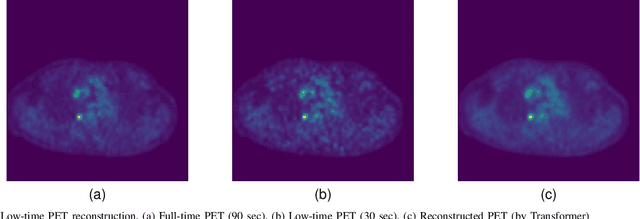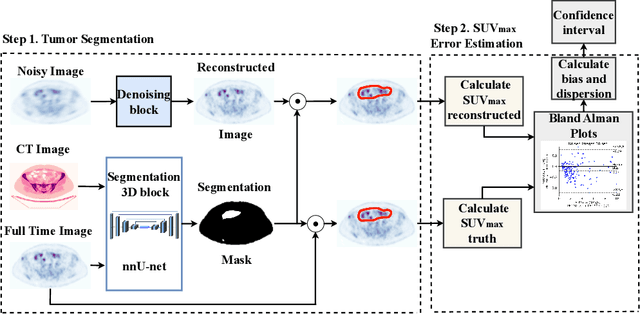Whole-body PET image denoising for reduced acquisition time
Paper and Code
Mar 28, 2023



This paper evaluates the performance of supervised and unsupervised deep learning models for denoising positron emission tomography (PET) images in the presence of reduced acquisition times. Our experiments consider 212 studies (56908 images), and evaluate the models using 2D (RMSE, SSIM) and 3D (SUVpeak and SUVmax error for the regions of interest) metrics. It was shown that, in contrast to previous studies, supervised models (ResNet, Unet, SwinIR) outperform unsupervised models (pix2pix GAN and CycleGAN with ResNet backbone and various auxiliary losses) in the reconstruction of 2D PET images. Moreover, a hybrid approach of supervised CycleGAN shows the best results in SUVmax estimation for denoised images, and the SUVmax estimation error for denoised images is comparable with the PET reproducibility error.
 Add to Chrome
Add to Chrome Add to Firefox
Add to Firefox Add to Edge
Add to Edge